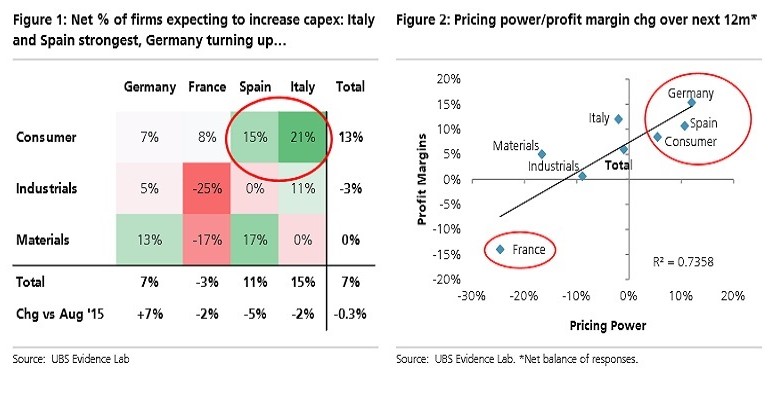UBS | We conducted a survey to determine whether Eurozone corporates are starting to invest again, and how this would be funded – a crucial question not just for the business cycle, but also for individual sectors and stocks. The results signal a cautiously optimistic investment outlook for the Eurozone overall, broadly unchanged from last summer, but with big differences across countries, sectors and firm sizes. Investment appetite remains strong in Spain and Italy, but weak in France, and is improving in Germany. Attitudes toward investment are solid in the consumer sector and weak, but stabilising, in materials. Responses from SMEs remain subdued, indicating that the full recovery of this crucial part of the economy will take more time.
Recovery in credit likely to proceed moderately
In line with our first Evidence Lab survey from last summer , corporate investment remains heavily based on existing cash flow and retained earnings, less on bank credit – and our new survey suggests that this trend is unlikely to change quickly. Hence, the recovery in credit growth is likely to remain moderate.
What does this mean for European equities?
Our survey suggests a mode st pick – up in capex from c.30 – year lows. This ties in with corporate profitability, where margins appear to be turning for the first time in five years. Domestic demand is the second biggest positive driver: this fits with our focus on domestically – exposed stocks. Germany, Spain and the Consumer sector have the best pricing power and margin outlook, France and Materials the worst.
Sectors and stocks: Who are the likely beneficiaries?
Shifts in technology are driving capex: it was the most importa nt factor in our survey. Sectors most correlated to a broader increase in capex are parts of Cap Goods, Technology, Transport and Financials. At a stock level, potential beneficiaries include: Valeo, Siemens, Legrand and Enel.





